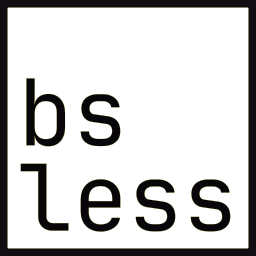BS-less Object Notation Specification 23.0 (BSON23.0)
October 29th, 2023
BSON Overview
BSON is a general purpose replacement of JSON. It is not developed with web and JavaScript 100% in mind. This specification covers the syntax of BSON. Bson can store:
-
- Longs/integers (64 bit)
-
- Floating points (64 bit)
-
- Strings
-
- Objects
-
- Arrays
Specification 23.0 Overview
To summarize, BSON is the same as JSON with these notable syntax changes as of this specification.
- - No colons
- - Quotes only surround string data
- - No commas between data
-
- C style comments '//'
Usage
Comments
To write comments, use '//'. All the data preceding it is ignored until the next line.
// This is a comment
Key names
In order to write data a name must be associated with it, which will be referred to as a key. The rules for the key name for BSON23 is currently:
- Only letters a-z/A-Z and underscores
- Numbers can appear only after the first letter
- No symbols... except underscores. These are valid examples of key names.
keyname ...
key_name ...
_key_name ...
key123name ...
keyname123 ...
_key_name123 ...
These are invalid examples of key names.
1keyname ...
#key-name ...
key-name ...
key*name ...
Longs
Integers are stored as 64 bit integers. These are referred to as longs. To create a long you specify the name, some whitespace, then the number.
myinteger 3
Floating points
Floating point numbers are stored as 64 bit doubles. To create a double you specify the name, some whitespace, then the number with at least one digit and one decimal point. The following are examples of valid doubles.
dec1 3.14
dec2 2.0
dec3 1.
dec4 0.
dec5 .0
These are not valid doubles.
mydecimal 5 // This is an integer
anotherdecimal . // This is a syntax error
Strings
Strings as of this version are anything inbetween two matching quotes.
mystring "Hello World!"
Escape sequences are planned in the future.
Objects
Objects are defined with braces, '{' and '}'. Inside the braces you can put any data inside so long it follows the previously associated syntax.
person {
first "John"
last "Doe"
age 33
}
Arrays
Arrays behave similarly to objects except that the name does no longer gets specified. Types in arrays do not matter. Arrays are defined with brackets, '[' and ']'.
ints [ 1 2 3 4 ]
decs [ 2.2 3.3 4.4 ]
They can also store objects
vecs [
{ x 1 y 2 }
{ x 3 y 4 }
{ x 5 y 6 }
]
people [
{
first "John"
last "Doe"
age 33
}
{
first "Jane"
lsat "Doe"
age 32
}
]
As mentioned, they all do not have to be the same type
array [
4
2.71
"String!"
arr2 [
1
"Wow"
{ x 1 y 2 }
]
obj {
number 6
friend "alfred"
}
coherently "nonsense"
]
